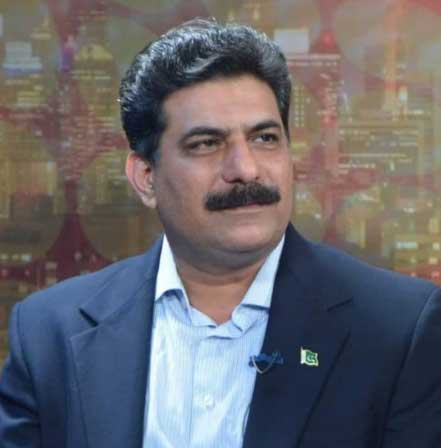The National Command and Operation Centre disclosed that the number of active Covid-19 cases had approximately increased by about 50 percent in three weeks. The national positivity ratio was at about 5.7 percent. The number of active cases was around 16,000 past months, but it went up to 23,355 on Tuesday. With no break-up in Covid-19 cases, the NCOC again introduced the restrictions on March 10. A two-week spring vacation in educational institutions in 10 cities, whereas Balochistan and Sindh were suggested to limit attendance to 50 percent. About 2,511 Covid-19 cases and 58 deaths were reported over the past 24 hours, with 258 patients on ventilators all over the country. About 2,394 patients are under treatment in hospitals across the country, with the total number of deaths registered at 13,595.Prime Minister Imran Khan had initiated the vaccination campaign on February 2 and the frontline healthcare workers were inoculated in the first stage. In the first week of March, the Drug Regulatory Authority of Pakistan permitted the use of Sinopharm which is the only vaccine available in Pakistan for the people above 60 years of age and the inoculation procedure started on March 10.
Educational institutions of all grades in seven cities of Punjab, and also in Peshawar and Islamabad will be closed for two weeks keeping in view the rise of Covid-19 cases. The cities of Punjab where the two-week spring vacations announced include Faisalabad, Gujranwala, Lahore, Gujarat, Sialkot, Multan and Rawalpindi. The situation in Sindh and Balochistan is comparatively better that is the reason that they can continue to function as per schedule. The third wave of Covid-19 has started in Pakistan and ascribed to the rising number of cases to the virus UK strain. The send-ups in schools will go on and the regulations do not apply on continued exams at all levels. The metric and intermediate level exams will be taken in June this year and additional decision in this context will be made later. Authorities in Punjab imposed new restrictions in the province to control the spread of the Covid-19 pandemic and announced that commercial activities will close at 6pm everyday till the limitation stay in effect. All business centres will close at 6pm and will not be allowed to function on weekends. The policy of 50 per cent work from home for both public and private offices has also been imposed. These regulations will remain in effect till March 29. About 1,653 new coronavirus cases were registered in Punjab on Saturday, taking the provincial total to 185,468. More or less 169,752 patients had recovered from the contagion as of yet. The smart lockdown in specific areas and prohibition on holding marriage ceremonies in covered areas will go on across the country. The shrines in Punjab have been closed till April 15 and the mosques have been ordered to see Covid-19 standard operation procedures are followed. The business centres and parks will remain closed on Friday, Saturday, and Sunday. In Khyber-Pakhtunkhwa almost 76,000 cases of the new coronavirus have been observed in the province. More than 2,150 patients were exposed to the virus. Above 70,500 patients also recovered from the pandemics in the province. In Peshawar micro-smart lockdowns in four areas of Peshawar owing to the rising number of Covid-19 cases. Universities will go online for two weeks in virus areas. All universities and higher educational institutions in cities shall remain closed for physical attendance during March 15- to 28, 2021.Universities are strictly advised to guarantee strict observance of the Covid-19 average health and safety protocols comprising thermal scanning, wearing facemasks, social distancing, availability and routine use of sanitizers and cleansing of buildings.
The re-emergence of the curbs has reasonably not gone down good with both the general public as well as the business community. Truly speaking, it is normal for people to get tired with the restrictions that have been in place in some form for about a year. People in European countries take to street in protests against lockdown measures. The government, therefore, needs to advance its efforts to face the enraged pandemic with a speed vaccination process. It’s disappointing to note that the government has not yet completely catered to the most at-risk population. Among the 400,000 people ageing 60 and above who recorded for vaccination in Karachi and Lahore, merely 10,500 have so far received the jabs. The number of doses administered in Pakistan is the lowest in the region. It is0.03 per 100 people in contrast 2.58 in Sri Lanka, 2.03 in Bangladesh, 1.38 in Nepal and 1.2 in India. About $150 million are allocated government for vaccine purchase is simply a very small amount. Presently Pakistan is solely depending on the one million vaccine doses gifted by China. Taking into account of a high mortality rate among senior citizens, the National Command and Operation Centre decided to permit people aged 70 years and above, who have registered themselves on the helpline 1166, to walk into any vaccination centre to get inoculated against Covid-19.People were requested to guarantee vaccination of senior citizens as most mortality cases were being reported in the old age group. The decision of walk-in vaccination will be applicable throughout the country. This includes Azad Kashmir and Gilgit-Baltistan. The provincial administrations were advised to act strictly against violators of standard operating procedures. Tourists, going to Gilgit-Baltistan, Azad Jammu and Kashmir and other spots, must ensure observance of proper SOPs. The provinces must ensure health guidelines were followed in transport and hotels. The government has introduced smart lockdown policy to have minimum economic impact. It successfully dealt with the first and second wave of the pandemic and will deal with the third wave in the same way.
Sign in
Welcome! Log into your account
Forgot your password? Get help
Password recovery
Recover your password
A password will be e-mailed to you.






